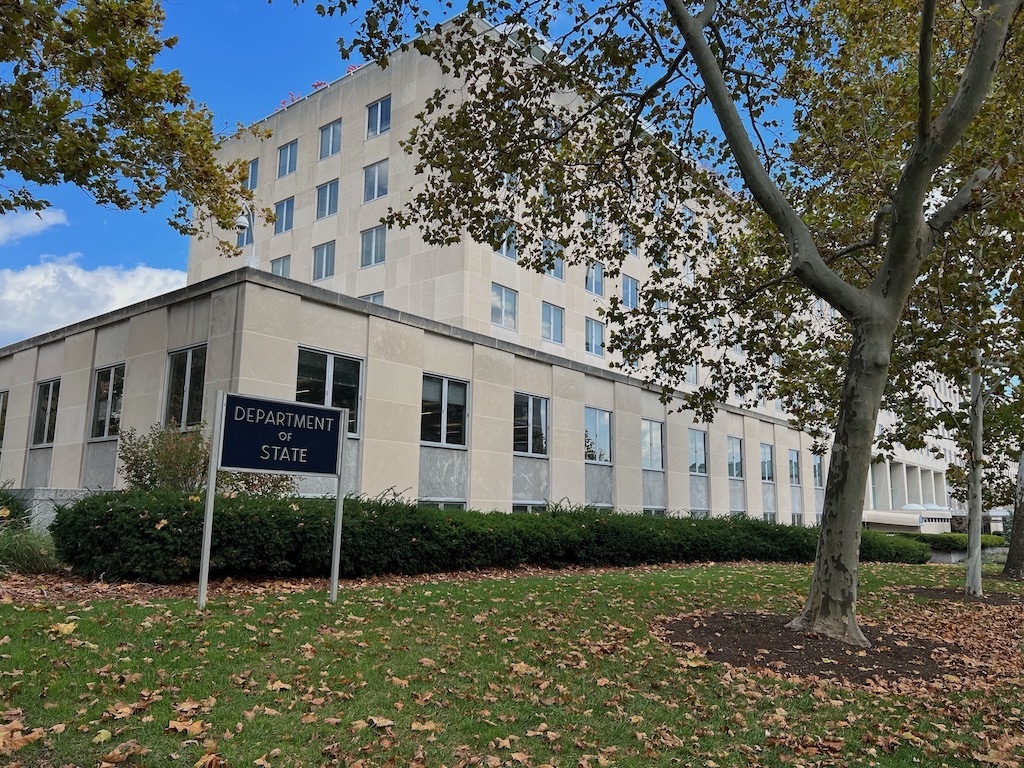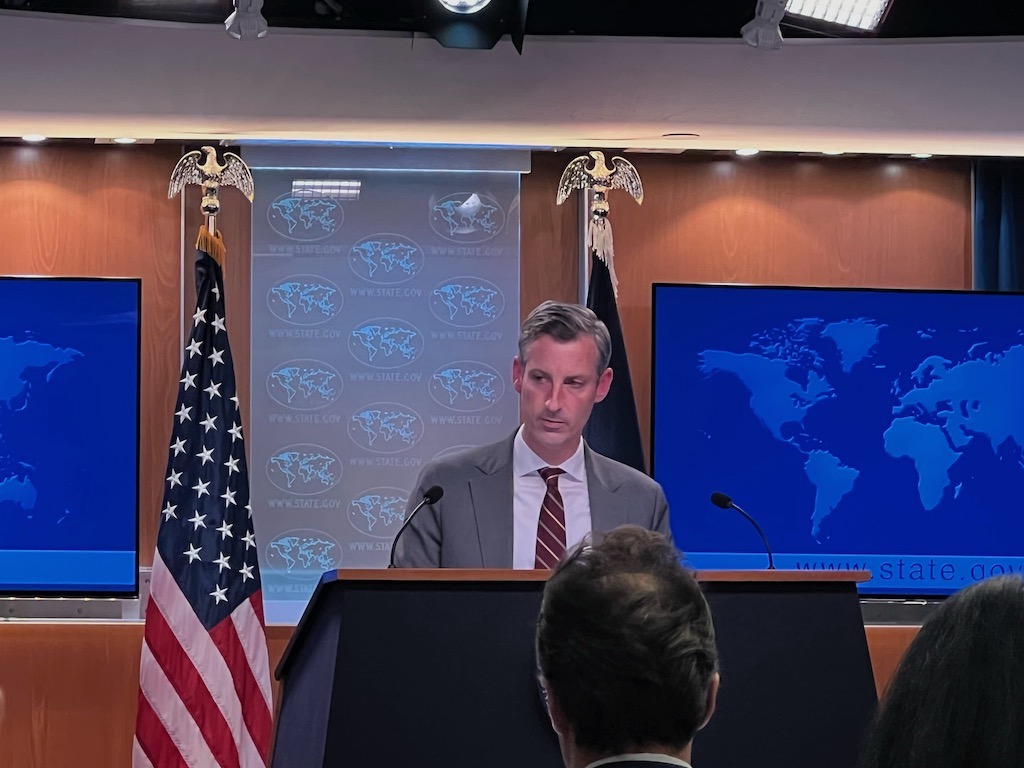WASHINGTON – Despite tensions over Russia’s invasion in Ukraine and possible escalation, the State Department and the Russian Ministry of Foreign Affairs are discussing how to address the restrictions that prevent the American Embassy in Moscow from issuing visas.
“As Under Secretary for Political Affairs Victoria Nuland stated recently, we want to make it easier for Russians to obtain U.S. visas in Moscow, but that requires action by the Russian government that would allow us to do so,” a State Department spokesperson told Capital News Service.
The measures would require the U.S. Embassy in Moscow to add more personnel. The embassy is currently limited to issuing only a small amount of official and diplomatic visas.
“The U.S. Embassy in Moscow, the Russian embassy here in Washington…both remain operational, of course. It has not been without challenges,” State Department spokesman Ned Price said during a press briefing Tuesday. “The Russians, we believe, had imposed onerous restrictions.”
Price added: “The viability of our embassy in Moscow is of the utmost importance to us principally because we will believe that even in times of tension…especially in times of conflict, it’s vitally important that we’ll be able to communicate openly with one another in the U.S. Embassy in Moscow, the Russian embassy here in Washington.”

The Russian Embassy in Washington did not respond to a request for comment.
Price said he did not expect the embassy issue to be raised at the G20 summit in Bali, Indonesia, later this month “mainly because I don’t expect that there will be discussions between the United States and Russia in the context of the G20.”
In May 2021, the Russian government issued a ban on employing foreign nationals by the U.S. Embassy and designated the United States as an “unfriendly” country.
“That ruling reduced staffing by more than 85% in our consular section,” the State Department’s spokesperson said. “These cuts greatly affected our operations, impeded our ability to provide visa services to the Russian public, and constrained our ability to engage with the Russian government and the Russian people.”
The State Department is interested in keeping the lines of communication open and engaging in diplomatic dialogue on a number of issues, including but not limited to the consular affairs and issues of Americans who are unlawfully detained in Russia.
“At the height of the Cold War there were exchanges between Russians and Americans and it was important, ” said Dr. Robert W. Orttung, research professor of international affairs at George Washington University.
He said the reason for that was to make sure that the Russian society got an accurate picture of American intentions and goals, and in return, that Americans had a real understanding of how things worked inside of Russia.
“Today it seems much worse than it was back in those times,” he said.
Over the years the United States and Russia made considerable efforts to develop relationships among the academics of both countries, according to Orttung.
“So I think it’s important to try and preserve those connections even though condemning the Russian aggression in Ukraine,” he said.
The current diplomatic relationship corresponds with the state of the real relationship between the United States and Russia, which has deteriorated since Russian President Vladimir Putin’s attack on Ukraine.
Elizabeth Rood, the deputy chief of mission in the U.S. Embassy in Moscow, assumed duties as chargé d’affaires after John Sullivan’s departure in September. He served three years in the post but stepped down and announced his retirement after his wife died.


You must be logged in to post a comment.